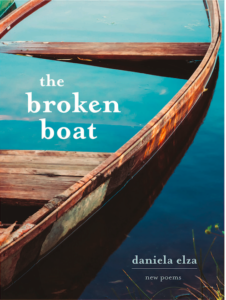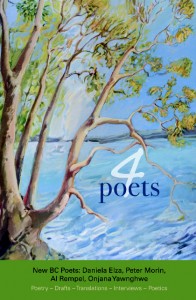good ideas have lonely childhoods
Posted by Daniela Elza on Feb 10 2010
Yes, that is what Hugh MacLeod says in his Ignore Everybody And 39 Other Keys to Creativity book.
Are we not between two forces that pull on us in different directions? Stuck in this tension between doing what is usual, safe, follows in an already trodden path. And doing something different, new, weird, strange, (well, within reason:-)) that as humans we tend to appreciate/value, yet have the hardest time accepting.
What creatures of habit we are. Each day I walk a path to get to where I am going. Even on such a superficial and insignificant level I get frustrated when something happens and I have to alter my path, take a different route. Or if I have to change the way I do a task, due to one (un)reason or another.
What to say of much bigger things like questioning our inherited beliefs, changing the way we live our life, the way we walk on this earth. We have countless examples of war and devastation that have resulted from such challenges be they religious, idealogical, philosophical, scientific etc. Are we more likely to fight or are we more likely to question ourselves? Questioning is a kind of examining, a kind of facing, and contemplating. Now, take that down to the very small scale of a relationship. Or even smaller. Between you and yourself.
So how would you know if something is a good idea at its inception, conception? According to MacLeod you won’t, and you don’t, and neither would anyone else around you. This is the chapter with which his book begins. And here is what he says on page 1.
“You don’t know if your idea is any good the moment it is created. neither does anyone else. The most you can hope for is for a strong gut feeling that it is. And trusting your feelings is not as easy as the optimists say it is.
There is a reason feelings scare us—becuase what they tell us and what the rest of the world tells us are often two different things.”
The gut feeling (I would hope) is not completely disengaged from the mind. Are there degrees of gutsiness? Could we also consider the benefits of being connected that way? A strong gut feeling seems to me to be based on a compilation of a whole lot of information. If you are a writer, it incorporates all you “know” of writerly things, and that would include some of the things you know, you do not know you know. So we cannot ignore this gut feeling, this hunch, since to me it seems like it is a more complex decision making process than just some logical line of thought in the head. Perhaps we can question if such a line of thought exisits?
In fact, I am even willing to question if we ever make decisions strictly with our head. Are we really rational about our decisions? Or are we making decisions based on our gut feeling (which is so fleeting and instantaneous that we cannot catch that is where the decision is made) and then we come up with the likely stories that would justify our decisions as we move it up into our heads? And the story can change.
Think about it. Listen carefully. Where do you make your decisions? Then listen carefully how your mind makes you believe you were rational about them.
————————————————–
PS Thanks to all who care to comment, on or off the blog.




